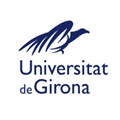
Haz click aquí para ver este centro en español
The Universitat de Girona (English: University of Girona), is located in the city of Girona, in the Catalonian region of Spain. A rather new university by Spanish standards, the institution was founded in 1991 to popular local acclaim. Today the Universitat de Girona consists of several campuses, with many buildings and other facilities spread across Girona. These campuses include the Montilivi, Barri Vell, Centre, Mercadal and Parc Científic i Tecnològic. A sixth campus, the Campus de Ciències de la Salut, is scheduled to be built in the near future. Since its founding, there have been 3 rectors of the Universitat de Girona: Josep Maria Nadal i Farreras, from 1991 to 2002; Joan Batlle i Grabulosa, from 2002 to 2005; and Anna Maria Geli, who ascended to the position in 2005 and continues to serve today.
The University of Girona (UdG) currently prides itself on being a young, dynamic and public university, one striving to become a hallmark of higher learning in the Mediterranean Arc through excellence in teaching, research and knowledge transfer. It is succeeding remarkably in this mission thanks to a consistent and enriching dialogue in a wide variety of knowledge areas, ranging from the sciences to the arts, including the health and social sciences, the humanities and technology.
History
The first mention of the Universitat de Girona came around the time of the Escola Normal de Mestres and, particularly, during the initiative brought forth in the decade of the 1960s, at which time city and academic leaders sought public support for recovering university-level studies in the city of Girona. During the same decade, the Col·legi Universitari de Girona and the Escola Politècnica Superior were created, schools that depended on previously- founded Spanish universities—the universities known as UAB and UPC, respectively. Later, the Estudi General, which previously operated in the region, was restarted, focusing on the academic areas of Economics, the Social Sciences and Humanities. Finally, in 1991, an autonomous government decree created the Universitat de Girona, which today is both the largest and mostcomprehensive university in the city.
The Universitat de Girona Today
The University of Girona is a homogeneous institution in which the relationship between faculty members and students is open, direct and individualized. The school hosts several facilities that collectively make the most out of old civic and religious structures, as well as university centers with newly built campuses and ample green space. The affiliated Science and Technology Park allows for a more dynamic relationship between students and instructors; a place where students receive the knowledge and skills they need to successfully transition to the world of business, the productive network of the country. These favorable circumstances are enhanced by the UdG’s surroundings: a city that enjoys a lively cultural scene and a developed economic region with broad European projection. Among other major focuses, the University of Girona stresses internationalism as one of the major keys to its success, and the school is always working to attract foreign students from around the world.
Research
The research that takes place at the University of Girona is primarily focused along two strategic lines: (1) water science and management, and (2) tourism and sustainability. Additionally, the UdG pursues research in a select number of innovative areas that have rapidly attained a prominent role at the university. All scientific research, including the dissemination of results and the ensuing social influence, is focused on computer simulation and applications, food and agriculture, biomedicine, the quality of life and cultural heritage.
The University of Girona has 10 research institutes, 24 departments and 112 quality research groups (62 in the humanities and social sciences, 50 in science, technology and various health fields.
- Architecture, Building and Landscape
- Architecture
- Arts, Design and Crafts
- Music
- Business
- Business Administration
- Education
- Education
- Engineering
- Engineering Science
- Health
- Nursing
- Health Occupations
- Hospitality, Leisure, Tourism and Travel
- Tourism
- Philology, Languages, Literature
- Philology and Linguistics
- Sciences
- Athletics and exercise science
Spanish, Catalan
Public University
+34 97 241 82 00
Girona Centre - Facultat de Lletres - Pl. Ferrater Mora, 1, Girona, Gerona, Spain, 17071

